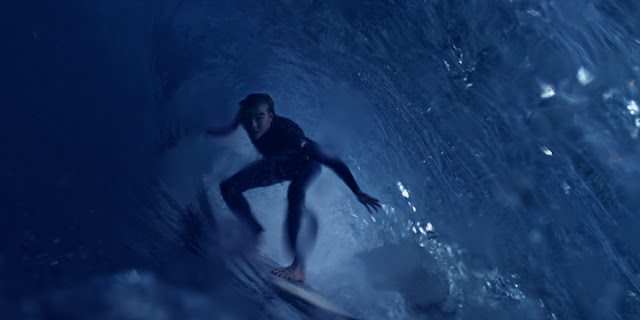2013: A Kubrickian Odyssey - Fear And Desire
Throughout 2013, I shall be watching all of Stanley Kubrick's 13 feature films in chronological order. I'll discuss each film on here along with a handful of documentaries and short films. To read all the posts so far, click on the "Stanley Kubrick" tag at the end of this post.
Prior to his death, Stanley Kubrick had attempted to keep Fear And Desire film out of circulation. He described it as the work of an amateur and reportedly acquired as many copies of the film as he could. In many ways, he was right to distance himself from this film; it demonstrates his inexperience and often descends in a pretentious mess. However, there are a handful of interesting things about it and it is arguably one of his most important films.
A fighter plane has crashed behind enemy lines and the four surviving soldiers must make their way out of the hostile territory. Their plans are sidetracked when a young girl stumbles upon the group.
It's easy to determine what Fear And Desire wanted to be. A tale of four soldiers who are each affected by the horrors of war. The film begins with the following narration:
Coming Next: A review of Killer's Kiss, a noir story about an ageing boxer.
Prior to his death, Stanley Kubrick had attempted to keep Fear And Desire film out of circulation. He described it as the work of an amateur and reportedly acquired as many copies of the film as he could. In many ways, he was right to distance himself from this film; it demonstrates his inexperience and often descends in a pretentious mess. However, there are a handful of interesting things about it and it is arguably one of his most important films.
A fighter plane has crashed behind enemy lines and the four surviving soldiers must make their way out of the hostile territory. Their plans are sidetracked when a young girl stumbles upon the group.
It's easy to determine what Fear And Desire wanted to be. A tale of four soldiers who are each affected by the horrors of war. The film begins with the following narration:
"There is war in this forest. Not a war that has been fought or one that will be; but any war and the enemies who struggle here do not exist, unless we call them into being. This forest then, and all that happens now is outside history, only the unchanging shapes of fear and doubt and death are from our world. These soldiers that you see keep our language and our time, but have no other country but the mind."
It's a well written opening piece, but its pretentious nature is immediately off putting and this strive to deliver profound statements ultimately overwhelms the story and characters. The first 15 minutes of the film aren't that bad. They're nothing spectacular, but serviceable. However, the story stalls and the four soldiers don't make for interesting protagonists. There's the leader, the one who goes a bit psycho, the one who sacrifices himself in order to give his life meaning, and another one who makes no impression whatsoever. The lack of a specific setting for the action makes it very difficult to engage with the film at all.
As the story approaches its conclusion, the pretentious pontificating returns. I don't object to what the film is trying to get across, the notion that the horrors of war have an significant impact on the mental stability of those involved, but rather the overbearing manner in which it is demonstrated.
I'm unsure whether the film's reliance on narration was a result of Kubrick's decision to record all of the sound and dialogue in post production, or vice-versa. I'm inclined to think it was the latter, so it's perhaps unfair to place the blame solely on Kubrick's shoulders. However, there are many technical faults with the film that lie solely with Kubrick. The editing is atrocious at best. He often cuts to close ups to show the reaction of characters, but cuts away again too quickly. Kubrick makes the right choices when it comes to choosing the sequence of scenes to cut together, but assembles them in such a way that makes much of the film incomprehensible. The direction and the shot composition are fine and the cinematography, from what I could determine was competently done as well (the LoveFilm stream didn't appear to be a copy of the restored print which is now available on DVD and Blu Ray).
Ultimately the film is, as Kubrick would go on to say, the work of an amateur (or technically two amateurs as many of the film's problems can be traced back to the script by Howard Sackler, who would go on to win the Pullitzer Prize for his play The Great White Hope). Fear And Desire is arguably one of Kubrick's most important films as he clearly identified the many things that he didn't do well and clearly felt embarrassment. Next up is Killer's Kiss which will hopefully demonstrate just how much Kubrick learnt from Fear And Desire.
Coming Next: A review of Killer's Kiss, a noir story about an ageing boxer.



Comments
Post a Comment